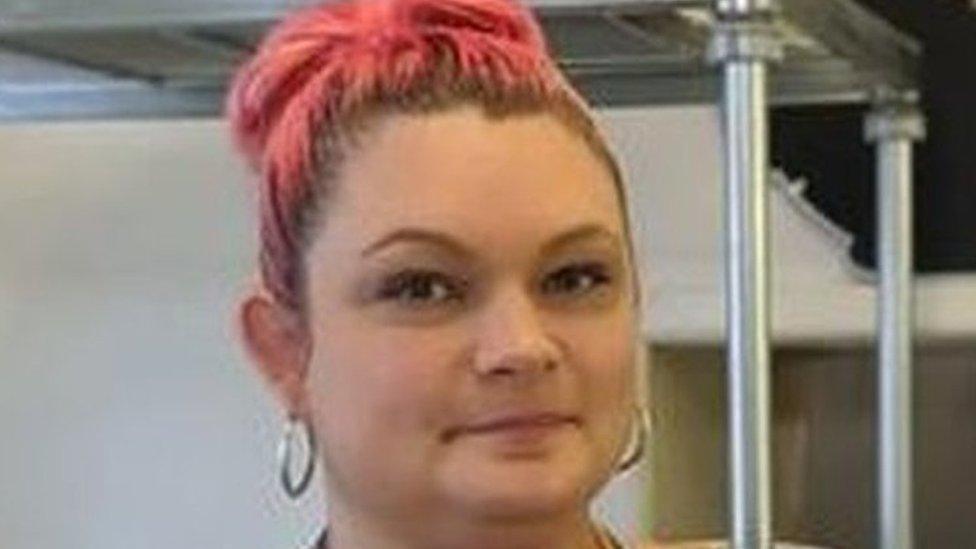Covid rules mean Bristol rough sleepers 'face horrible winter'
- Published
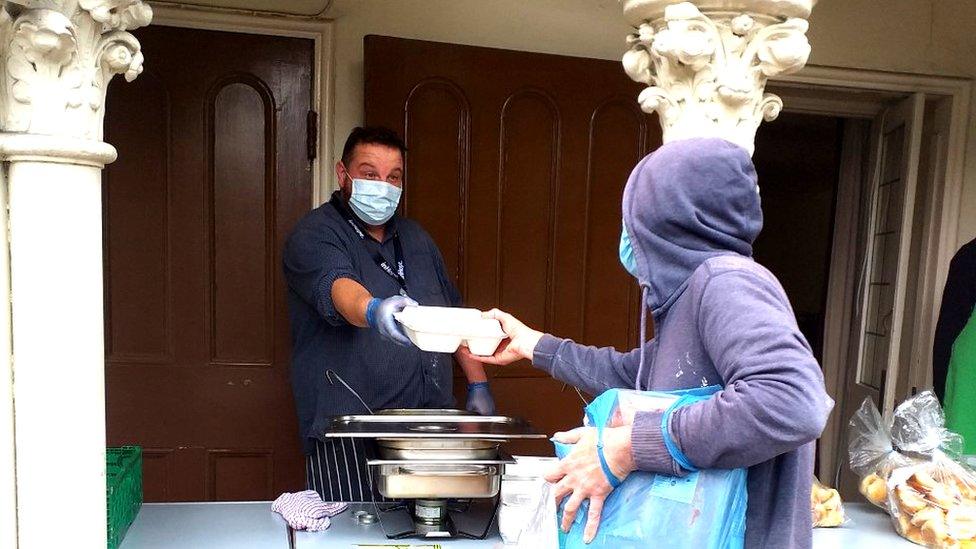
The InHope charity has been running a food outlet outdoors since lockdown
Long-term rough sleepers are facing a "horrible winter" made worse by Covid restrictions, a support service said.
The NHS Homeless Health Service supports people with general health and rehabilitation services in Bristol.
Lead GP Dr Mike Taylor said Covid rules meant reduced provision for indoor homeless cafes, emergency night shelters and his drop-in centre.
Another homeless charity InHope is having to restructure and reduce services in line with Covid guidelines.
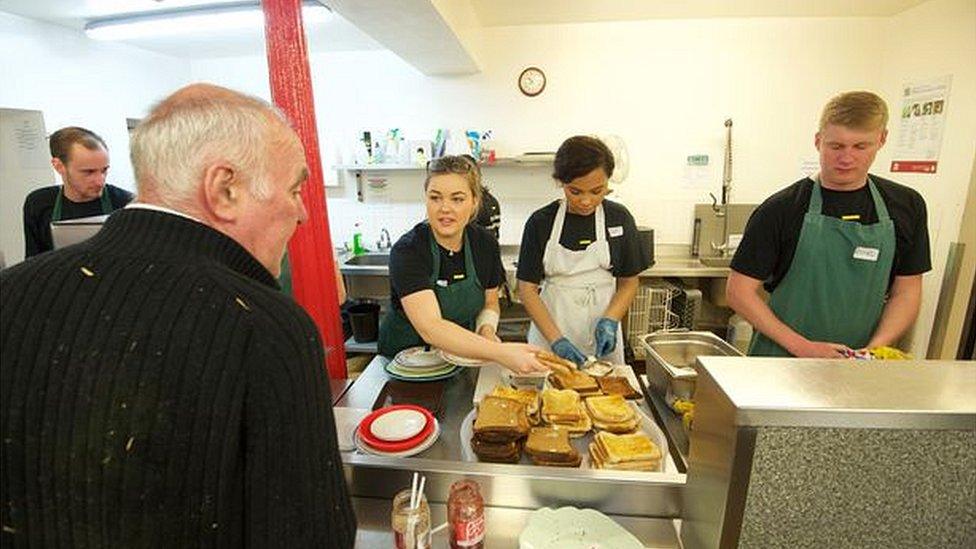
The Wild Goose Cafe used to allow people sit inside to eat and chat with support workers
He said a "solid group" of about 100 rough sleepers would remain on the streets and were "beyond the help the council could provide for them, not for a lack of effort on their part".
He added this "solid group" relied on drop-in services as they felt safer on the streets but would be facing a "dull, wet horrible winter".
Since lockdown, councils were given funding to get people off the streets.
Bristol City Council is continuing this despite funding ending in September.
"For us it means that we can't operate," said Dr Taylor from the Stokes Croft-based NHS service.
"We used to have a large waiting room in which people could keep warm, have a cup of tea, some food and people to talk to.
"Now we're having to work through a window reception."
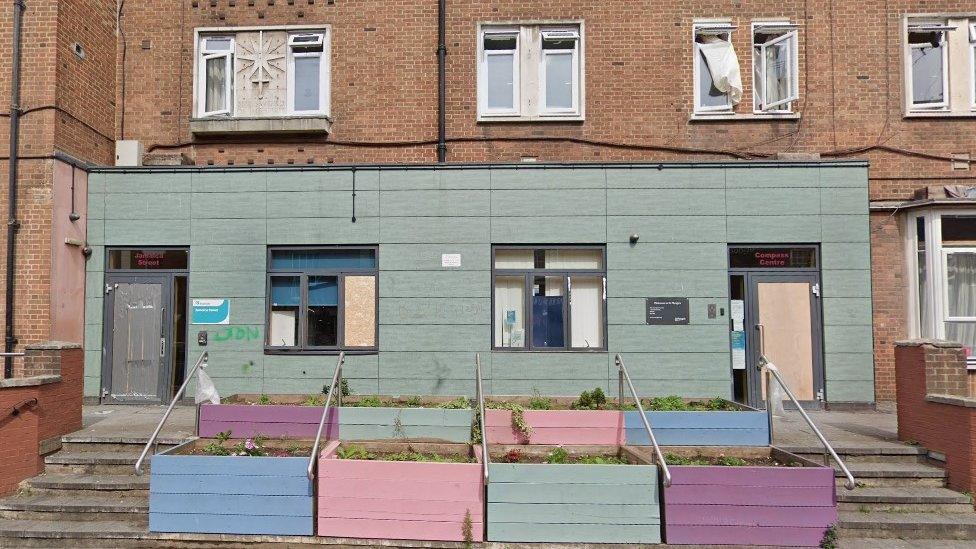
The NHS Homeless Health Service can now only use a reception window to chat to service users
InHope runs the Wild Goose Cafe but can now only run outdoors and is considering how to run its centre over winter.
Manager Steve Baker said: "They won't be able to stay for whole day if it is chucking it down with rain."
He added people would need to have a time slot to ensure social distancing.
'Vulnerable and susceptible'
The charity also runs a women's night shelter but cannot offer emergency beds due to Covid.
"It would have to be for women who were referred in and would be staying with us pretty much 24/7 for a while," he said.
These rough sleepers were "more vulnerable and susceptible" due to compromised immune systems.
- Published1 October 2020
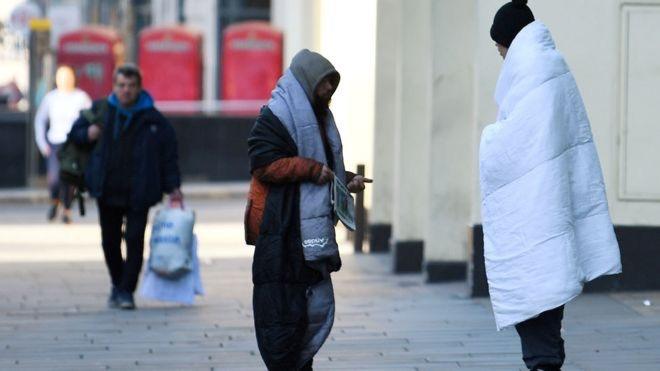
- Published15 June 2020

- Published3 April 2020
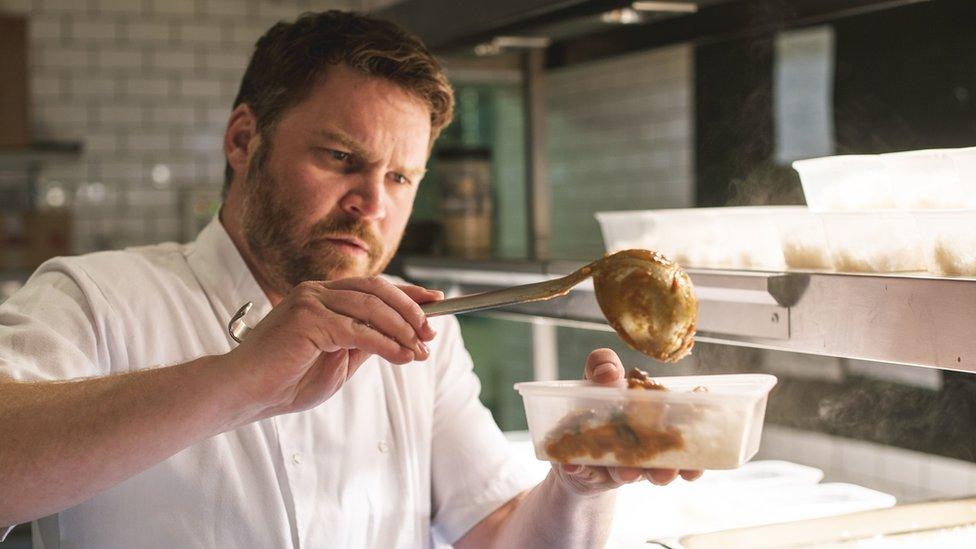
- Published14 January 2020
